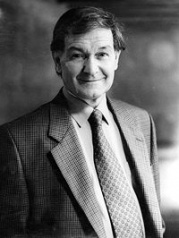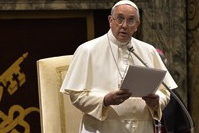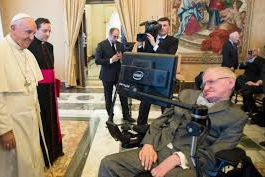Scientist debunks Hawking's 'no God needed' theory

Sir Roger Penrose
Famed mathematical physicist Sir Roger Penrose, who worked alongside Stephen Hawking for many years developing Big Bang theory, has debunked Hawking's 'no-God-needed' theory of the universe as "hardly science" and "not even a theory" on Premier Christian Radio.
Speaking on the station's weekly faith debate programme Unbelievable? on Saturday 25 September, Penrose described Hawking's new book The Grand Design as "misleading" adding that M-theory, which Hawking claims has made God redundant as a cause of the universe, was "not even a theory" and "hardly science" but instead "a collection of hopes, ideas and aspirations."
Penrose was in dialogue on the programme with Alister McGrath, professor of theology at Kings College London. The two men joined host Justin Brierley to respond to the question of whether Hawking's new theory had made God redundant as a potential explanation of the origin of the universe.
Criticising M-theory, Penrose said: "It's a collection of ideas, hopes, aspirations. The book is a bit misleading. It gives you this impression of a theory that is going to explain everything; it's nothing of the sort. It's not even a theory."
The Universe has not been shown to "create itself from nothing".
Asked whether science shows that the universe could "create itself from nothing" as claimed in the book, Penrose was strong in his condemnation of the 'string' theory that lies behind Hawking's statement: "It's certainly not doing it yet. I think the book suffers rather more strongly than many. It's not an uncommon thing in popular descriptions of science to latch onto an idea, particularly things to do with string theory, which have absolutely no support from observation. They are just nice ideas." He added that such ideas are ""very far from any testability. They are hardly science."
As a former colleague who worked closely alongside Hawking in developing gravitational singularity theorems, Penrose is perhaps the most high profile scientist yet to dismiss Hawking's views.
"Multi-verse" has not superseded God
He also responded to the so-called "multi-verse" hypothesis that Hawking's theory also posits. Christians, including Professor McGrath, have pointed towards the fact that our universe is incredibly "fine-tuned" for life to come into existence, thus providing evidence of a transcendent designer. Hawking's "multi-verse" hypothesis is a form of the 'anthropic principle': since ours is one in an array of universes, we inevitably only observe a universe with the correct 'settings' that support conscious life.
Responding to the 'multi-verse' hypothesis, Penrose, a Distinguished Supporter of the British Humanist Association who describes himself as having "no religious beliefs," said: "Its overused, and this is a place where it overused. It's an excuse for not having a good theory."
Premier presenter Justin Brierley said: "What's interesting is that Penrose's criticisms of Hawking are not driven by any faith position. Instead he simply recognises that the science does not justify making statements about God's non-existence, which is a much more honest position than other well-known scientists, such as Dawkins, who want to equate science with atheism."
Penrose's own alternative view of the universe is detailed in his new book "Cycles of Time" published by The Bodley Head.
Clips of the discussion can be seen at: www.youtube.com/watch?v=Dg_95wZZFr4
To hear the full programme visit: www.premier.org.uk/unbelievable


















